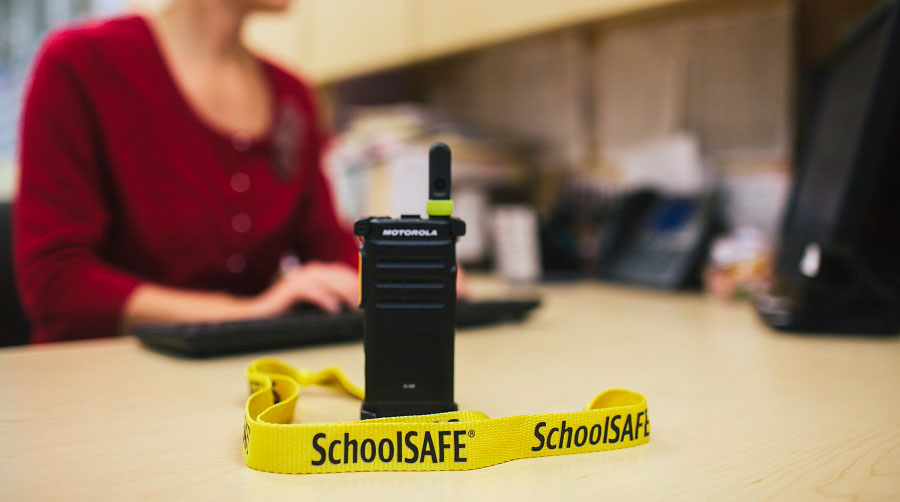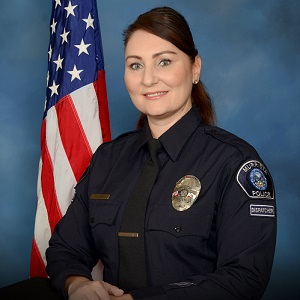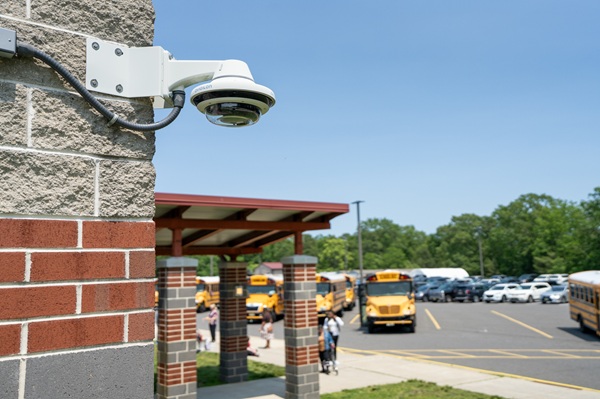The United States Department of Justice defines School resource officers (SRO) as “a career law enforcement officer with sworn authority who is deployed by an employing police department or agency in a community-oriented policing assignment to work in collaboration with one or more schools.” The first step in becoming a school resource officer is to become a sworn, career law enforcement officer. The National Association of School Resource Officers (NASRO) recommends at least 40 hours of specialized training in school policing. But the position requires much more than what can be learned in training.
What does it take to be a successful School Resource Officer?
The School Resource Officer supports and facilitates the educational process within a school system by providing a safe and secure environment through building and establishing meaningful relationships with students and staff. Officers in school systems have diverse roles. School-based officer assignments in schools may vary depending on the school district, but there are common responsibilities such as mentoring, teaching, creating partnerships, building relationships, and ensuring school safety. SRO’s proactively interact with the school community to ensure the enforcement of city and state laws, preservation of public order, protection of life and the prevention, detection, or investigation of crime.
The goals of many SRO programs include providing safe learning environments in schools, providing valuable resources to school staff members, fostering positive relationships with students, developing strategies to resolve problems affecting students and protecting all youth and staff, so that they can reach their fullest potentials. NASRO considers it a best practice to use a “triad concept” to define the three main roles of school resource officers: educator (i.e. guest lecturer), informal counselor/mentor, and law enforcement officer.
Educator – In many jurisdictions, officers not only patrol the halls, but also work in classrooms as teachers on topics that relate to policing. Topics can include policing as a career, Drug Abuse Resistance Education programs, and motor vehicle safety.
Counselor – One of the first things a School Resource Officer should do when new to the school environment is to familiarize themselves with the key community resources available to them. When issues from the community follow students to the classroom and the school campus, officers on site can be a resource for school administrators and teachers by helping to figure out how to address issues. This includes mental health services, child protective services, communication tools and technologies used by the school.
Enforcer – While on campus, officers are responsible for public safety within the established school boundaries. They are the liaison between the school, police, and the surrounding community. SROs are the go-to information resource about law enforcement matters for students and school personnel. In addition to handling calls for service from the school, they’re also often assume primary responsibility for coordinating the response of other police resources during an incident.
Like other specialized units within police departments, officers being recruited to work with youth should be part of a formal application process, which includes an interview with both police and school personnel, and a review of previous assignments. Law enforcement executives, school leaders, and other stakeholders should work together to establish the criteria for finding the best school-based officer. The Police Foundation believes the core qualities that every school-based officer should have include:
- Demonstrated ability to teach and engage with youth, such as past coaching or mentoring experience
- Excellent communication and interpersonal skills and interpersonal skills coupled with an understanding of teen use of social media
- A positive attitude
- Previous experience as a patrol officer
- Ability to work independently
- Ability to work effectively as part of a team of youth-serving professionals
- Willingness to develop partnerships with students, parents, families, community organizations, and school administrators
- Recognition that student success is the primary outcome sought
- Knowledge of school-based legal issues
- Knowledge of school and social service resources
- Understanding of child development and psychology
- Understanding of crime prevention through environmental design (CPTED)
- Knowledge of school safety technology and implementation
(Raymond, 2010; Finn et al., 2013)
Communication skills are often an overlooked quality when it comes it school resource officers. Some may be surprised at how crucial strong communication skills are for this role. Communication skills can be completely vital on the job and can be leveraged several ways. Documenting details, connecting with students, and keeping the community informed are pillars of the job that can’t be fully taught in training. During times of crisis, it’s vital that school resource officers know how to clearly get a message across to those who need to know A.S.A.P.
School-Police partnerships have a long history in the United States, of working together to enhance youth safety and reduce violence in schools. Programs like “Officer Friendly” date back to the 1960s. The first school-based officer program began in Flint, Michigan in 1958. The overall goal for this first program was to improve relationships between local police and youth. Officer responsibilities included teaching, counseling, and mentoring students on a full-time basis.
As times change, the role is evolving and can be different in every district. It is not a role for everyone, and officers should not be involuntarily assigned to schools. It is important to engage with officers who want to work with children and in a school setting. To be successful in this role, you need to want to be there.
A School Resource Officer serves not only as a protector, but also a role model for many kids. Many officers also become mentors to youth in schools and develop positive relationships with students and their families. Many officers notice youth who seem at risk or vulnerable, and recognize that taking on a mentoring role can be invaluable. Ideally, each officer in a school setting would have the expertise and experience to respond to a range of issues while on campus, and be a positive resource to school staff, students, and parents.





Comments are closed here.